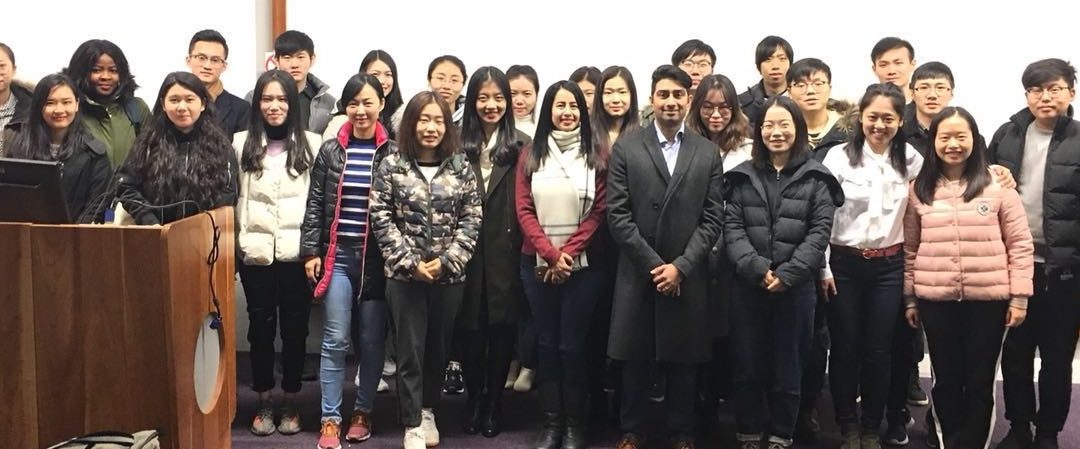The University of Manchester’s Global Development Institute offers a range of taught master’s programmes focusing on human resource management, organisational change and managing and delivering development projects.
The master’s programme includes fieldwork and visits to organisations as well as guest lectures providing students with an opportunity to gain insights into practice-focused human resource and international management.
As an adjunct to the Organisational Behaviour course unit and part of the Study Enhancement Programme of the MSc HRM programme, guest lecture sessions provide students with an opportunity to gain insights into practice. Humayoun Akhtar from World Pay presented human resource and international management challenges facing the multinational UK-USA managed company. Akhtar linked Human Resource theories and practice through issues and examples from the international digital payment organisation. The session also included reflective learning time through group discussion and Q&A.
Students of the MSc HRM (ID) Programme reflected the lecture:
“I was amazed by the lecturer, Mani Akhtar’s career achievements in the past six years as an HR practitioner. This guest lecture has brought practical HR theories and current development knowledge to us, with his well-prepared materials and humour. It was a precious experience for us to get to know their business model as well as how they cooperate with their global partners. When it came to the concept of HR business partners, Mr. Akhtar illustrated his own definition of the term.”
Sibin Gui , MSc HRM (ID)
“Informative and eye-opening on many levels; it gave us insights on the career path sequence of an HR candidate’s career, the meaning of HR advisor vs. business partner, the HR function to balance the employees’ benefits and the organisation’s benefits, connected HR theory to practical experience, challenges and opportunities of a HR career, and how to make the best out of our master’s degree in the practical field.”
Maram Mohammad Abudamou, MSc MIDP,:
“This was helpful for us to have a preliminary idea of human resource management practice in British organisations, including both public and private sectors. Incorporating the theory into practice, Mani explained the Dave Ulrich Model of HR roles by sharing his own work experience of HRBP and HR advisor. He also shared the importance of labour law and influential power by culture (country level, organisational level), such as, how culture links to branding and control. In addition, he elaborated HR activities in policies and rules through a disciplinary investigation case study, as well as the impact of union involvement in employee relation matter.”
Bei Liu (Fion) , MSc HRM (ID)

HR professionals use the ‘Ulrich model’ as the basis for transforming their HR functions, based on the idea of separating the HR policy making, administration and business partner roles
For further details about the Global Development Institute (GDI) MSc programmes in Human Resource Management (International Development), please visit the GDI website.
Thanks again to Humayoun Akhtar for making this guest lecture possible and sharing his early career working experience on Human Resource Management with our students.
Paul Barry and Lujia Feng

